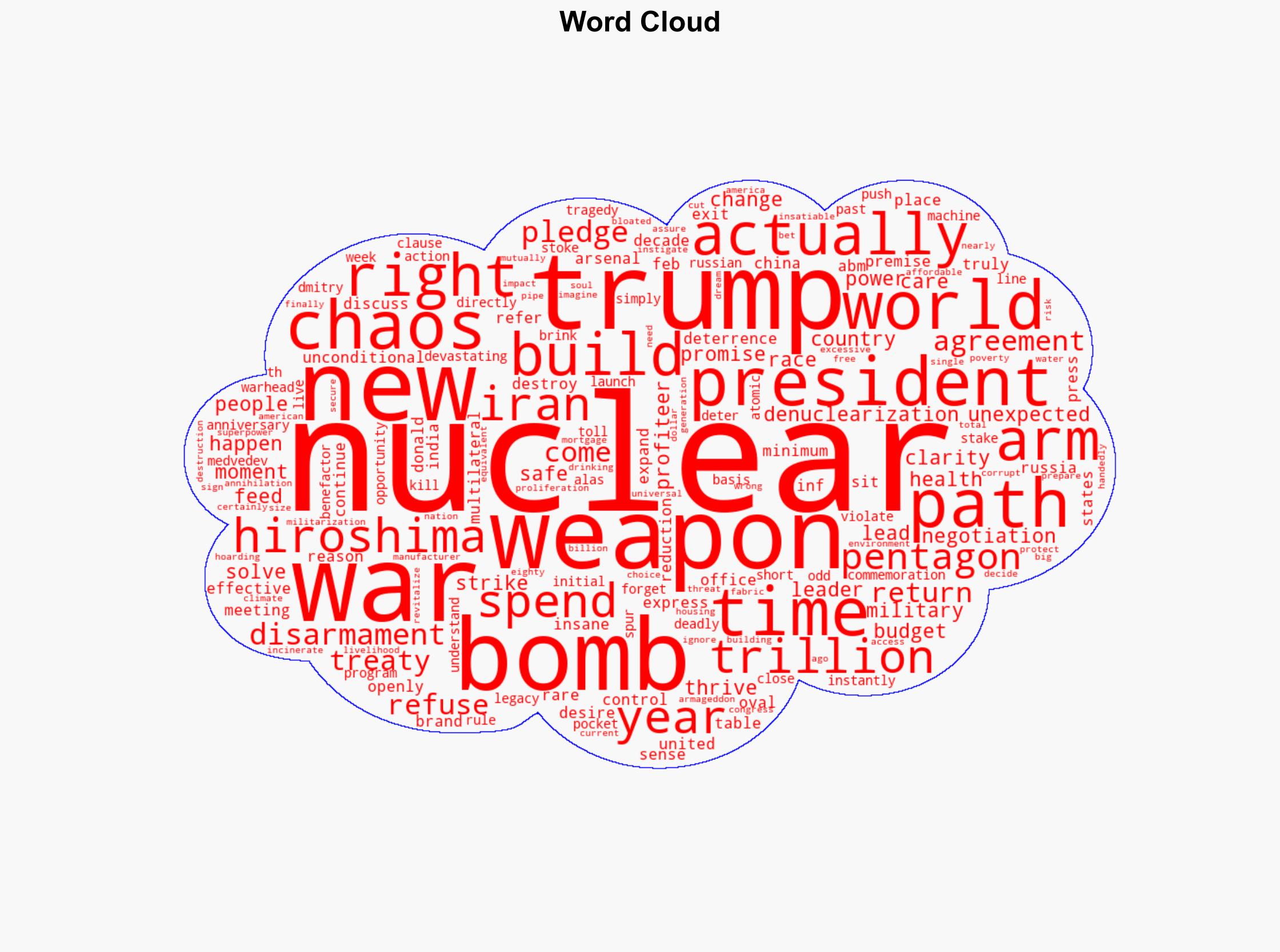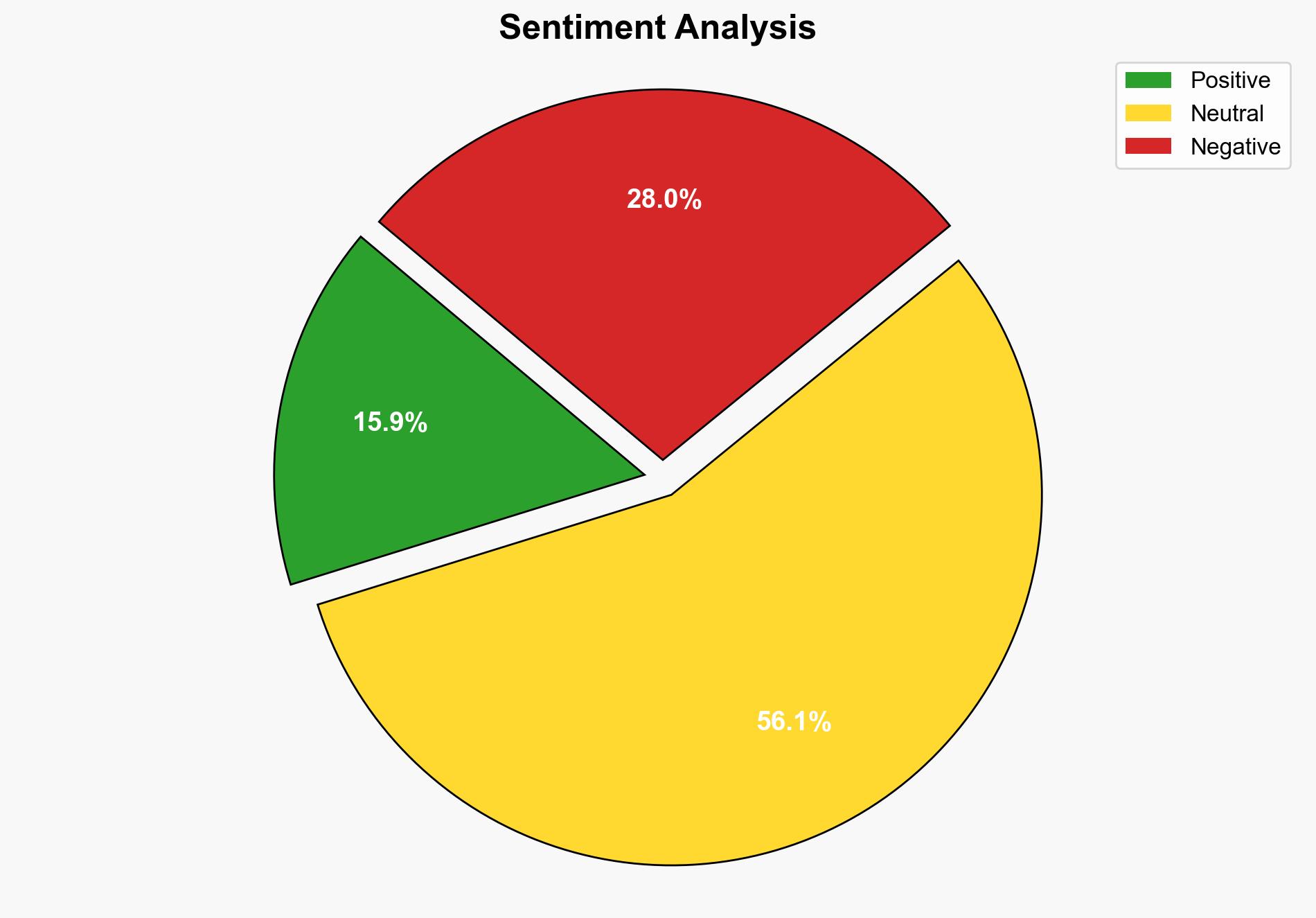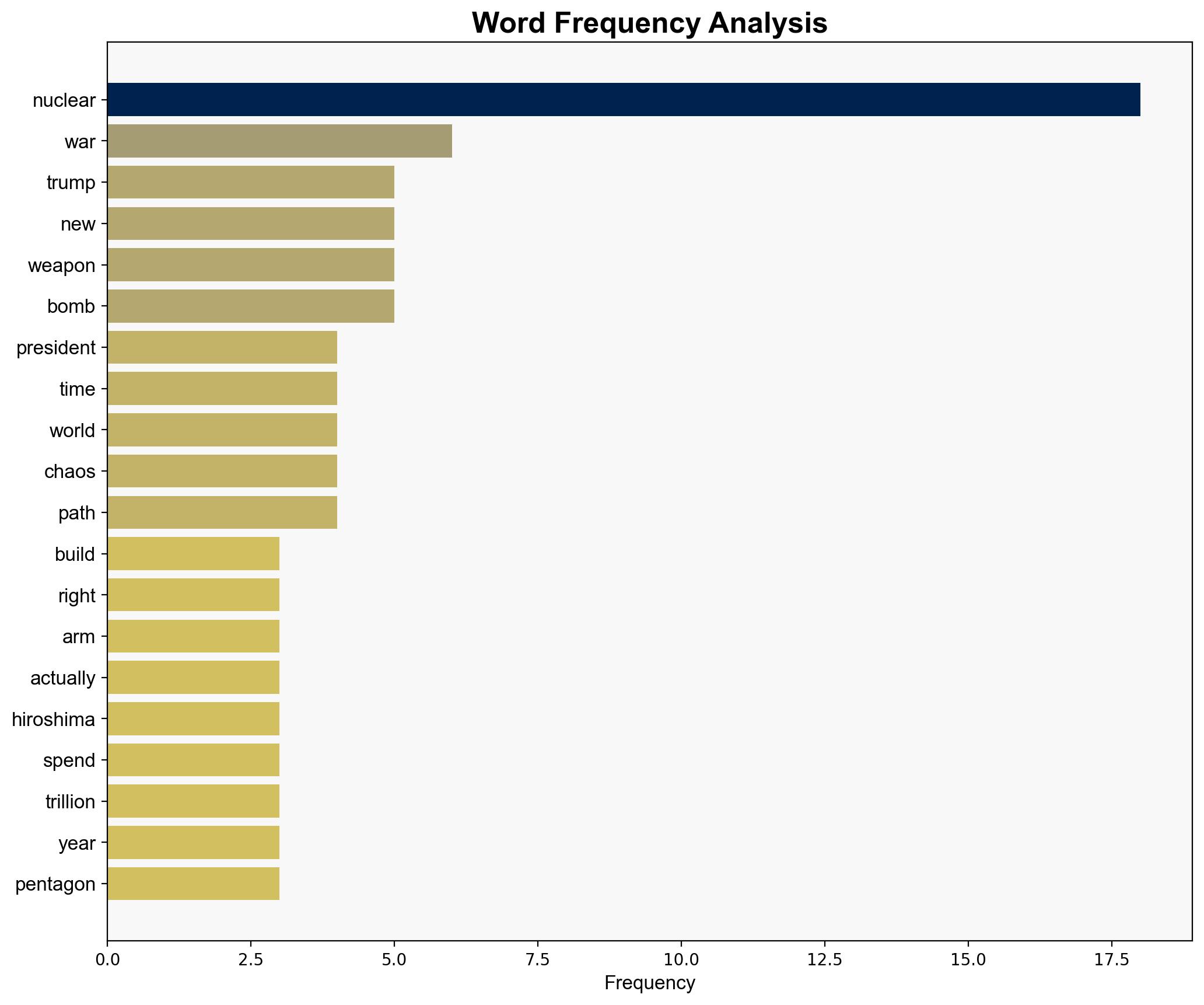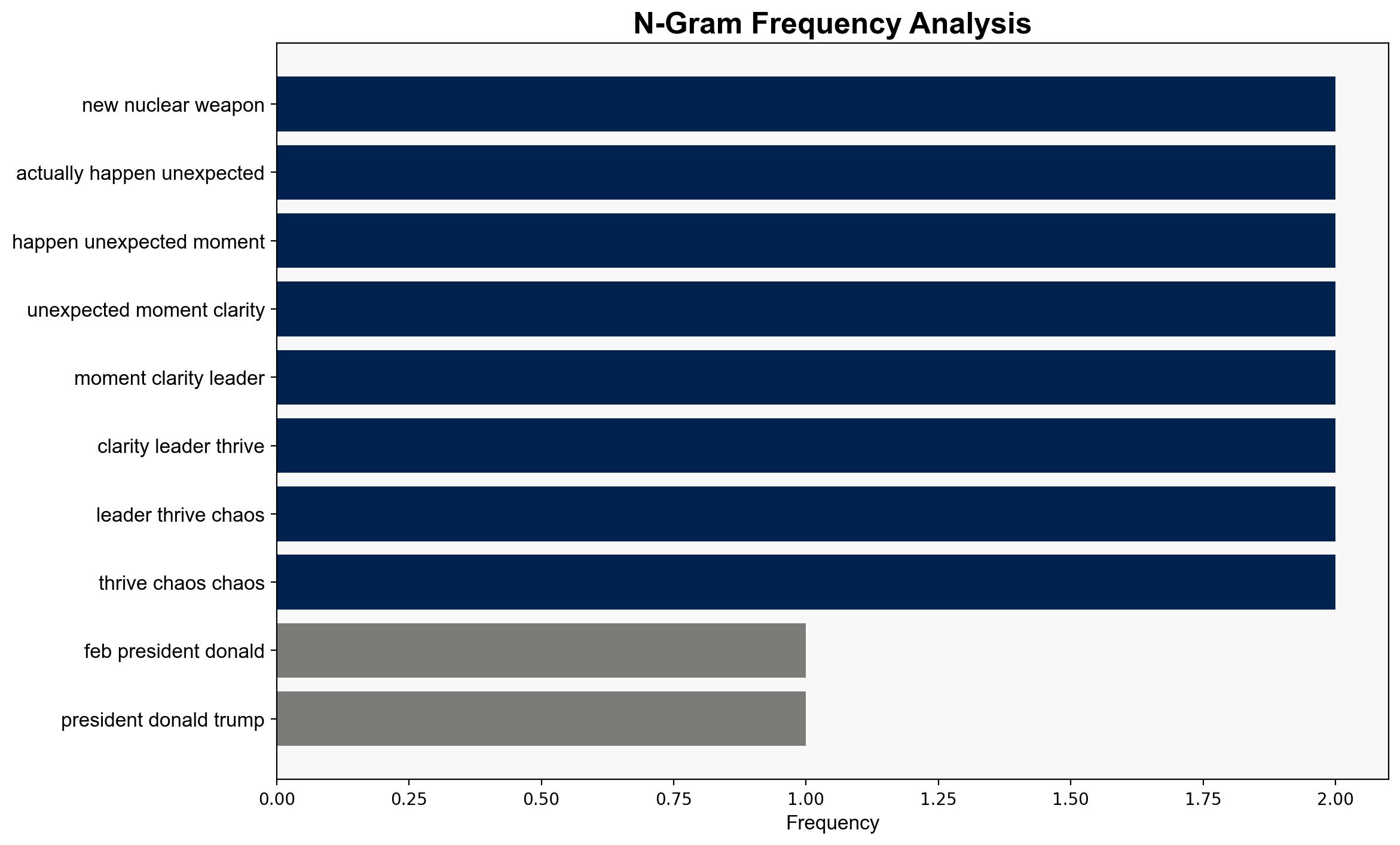Opinion Trump once openly discussed nuclear disarmament What happened – MSNBC
Published on: 2025-08-10
Intelligence Report: Opinion Trump once openly discussed nuclear disarmament What happened – MSNBC
1. BLUF (Bottom Line Up Front)
The strategic judgment is that the initial discussions by Donald Trump on nuclear disarmament were likely a strategic posture rather than a genuine policy shift. The most supported hypothesis is that the disarmament rhetoric was a temporary diplomatic maneuver rather than a sustained commitment. Confidence in this assessment is moderate due to the complexity of geopolitical factors and Trump’s unpredictable policy shifts. Recommended action includes monitoring for shifts in U.S. nuclear policy and engaging in diplomatic dialogues to clarify intentions.
2. Competing Hypotheses
1. **Hypothesis A**: Trump’s initial discussions on nuclear disarmament were genuine and aimed at reducing global nuclear tensions. This was derailed by geopolitical pressures and internal policy contradictions.
2. **Hypothesis B**: The disarmament rhetoric was primarily a strategic maneuver to gain diplomatic leverage and was not intended as a long-term policy shift. Subsequent actions align more closely with maintaining or expanding nuclear capabilities.
Using ACH 2.0, Hypothesis B is better supported due to consistent patterns of military actions and policy decisions that contradict disarmament goals, such as exiting arms control agreements and increasing military budgets.
3. Key Assumptions and Red Flags
– **Assumptions**: Both hypotheses assume Trump’s statements reflect either a genuine policy intent or a strategic posture. There’s an assumption that geopolitical pressures heavily influence U.S. nuclear policy.
– **Red Flags**: The contradiction between disarmament rhetoric and actions such as military strikes and arms expansion. Potential cognitive bias includes confirmation bias in interpreting Trump’s statements as genuine policy shifts.
– **Missing Data**: Lack of detailed insights into internal decision-making processes and the influence of advisors on nuclear policy.
4. Implications and Strategic Risks
– **Patterns**: A pattern of rhetoric not aligning with actions suggests a potential credibility gap in U.S. foreign policy.
– **Cascading Threats**: Increased risk of nuclear proliferation if U.S. policy shifts are perceived as unreliable. Potential escalation in arms races with countries like Russia and China.
– **Geopolitical Dimensions**: Strained relations with allies and adversaries due to inconsistent policy signals. Risks of miscalculation in nuclear diplomacy.
5. Recommendations and Outlook
- Engage in multilateral dialogues to clarify U.S. nuclear policy intentions and rebuild trust with international partners.
- Monitor for policy shifts and prepare contingency plans for potential escalation in nuclear tensions.
- Scenario Projections:
- Best: Renewed commitment to arms control agreements and genuine disarmament efforts.
- Worst: Escalation of nuclear arms race and increased global tensions.
- Most Likely: Continued strategic ambiguity with occasional diplomatic overtures.
6. Key Individuals and Entities
– Donald Trump
– Dmitry Medvedev
7. Thematic Tags
national security threats, nuclear policy, geopolitical strategy, arms control





